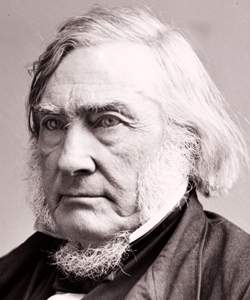Samuel Nelson (American National Biography)
Scholarship
Nelson's career on the bench was marked by an interest in technical cases rather than in the better-known constitutional issues. Specializing in admiralty and maritime law, patent law, equity, international law, and the conflict of laws, he gained a reputation as a diligent, reliable, fair-minded, and apolitical judge.
Nelson's opinion in the Dred Scott case illustrates his lack of political bias. The slave Dred Scott sued for freedom after his master took him into a territory Congress declared "free" in the Missouri Compromise of 1820. The first question to be settled was whether Scott was a U.S. citizen. Precedent dictated that in these cases citizenship status was determined by the law of the state in which the suit was brought, and under Missouri law Scott remained a slave and therefore was not a citizen. Nelson therefore voted that the Court should not hear the case. Other, more politically motivated members of the court voted to hear the case. In the final court decision, Nelson agreed with the majority that Scott must remain a slave, but he submitted an independent opinion.
Nelson's opinion in the Dred Scott case illustrates his lack of political bias. The slave Dred Scott sued for freedom after his master took him into a territory Congress declared "free" in the Missouri Compromise of 1820. The first question to be settled was whether Scott was a U.S. citizen. Precedent dictated that in these cases citizenship status was determined by the law of the state in which the suit was brought, and under Missouri law Scott remained a slave and therefore was not a citizen. Nelson therefore voted that the Court should not hear the case. Other, more politically motivated members of the court voted to hear the case. In the final court decision, Nelson agreed with the majority that Scott must remain a slave, but he submitted an independent opinion.
Elizabeth Zoe Vicary, "Nelson, Samuel," American National Biography Online, February 2000, http://www.anb.org/articles/11/11-00625.html.



